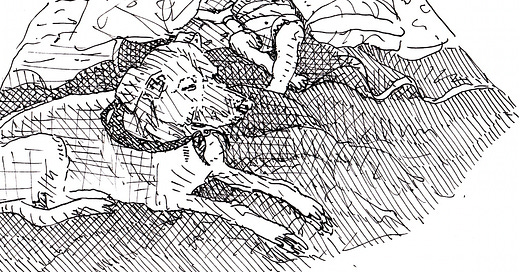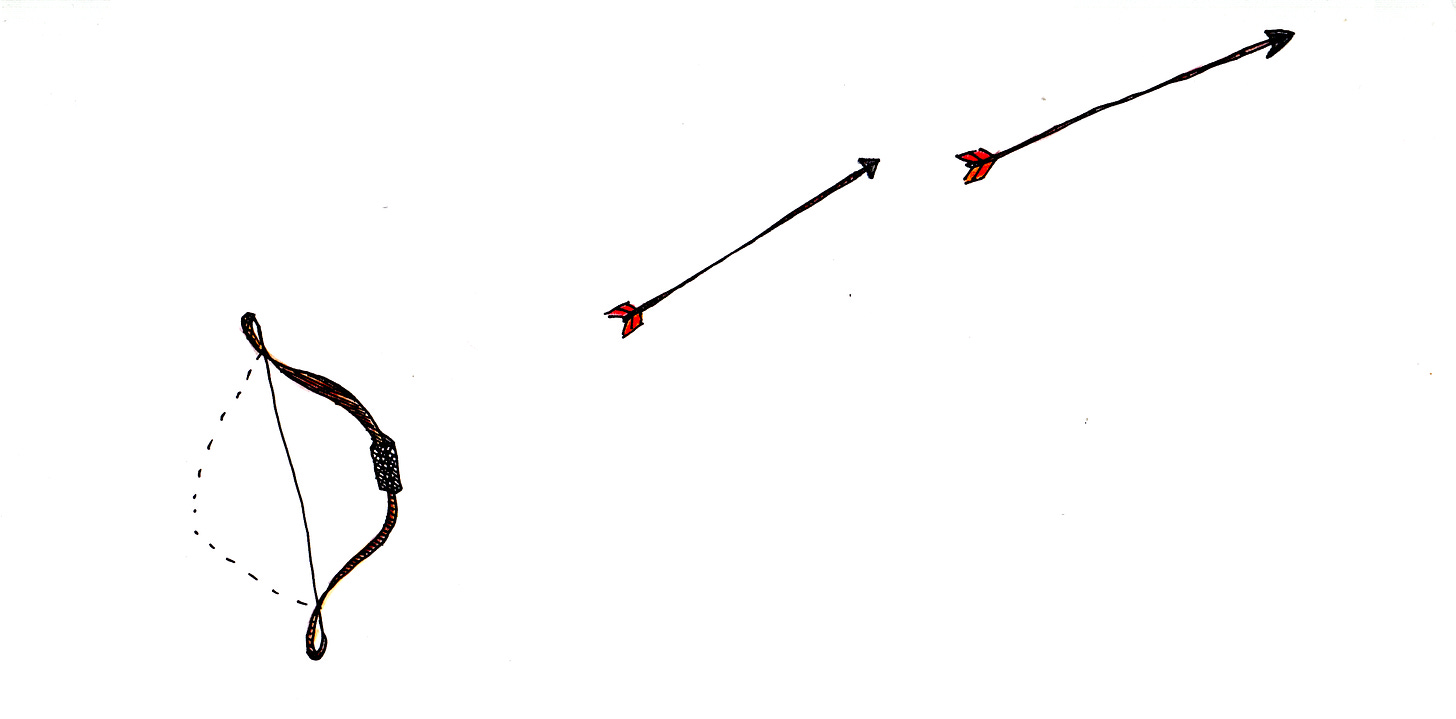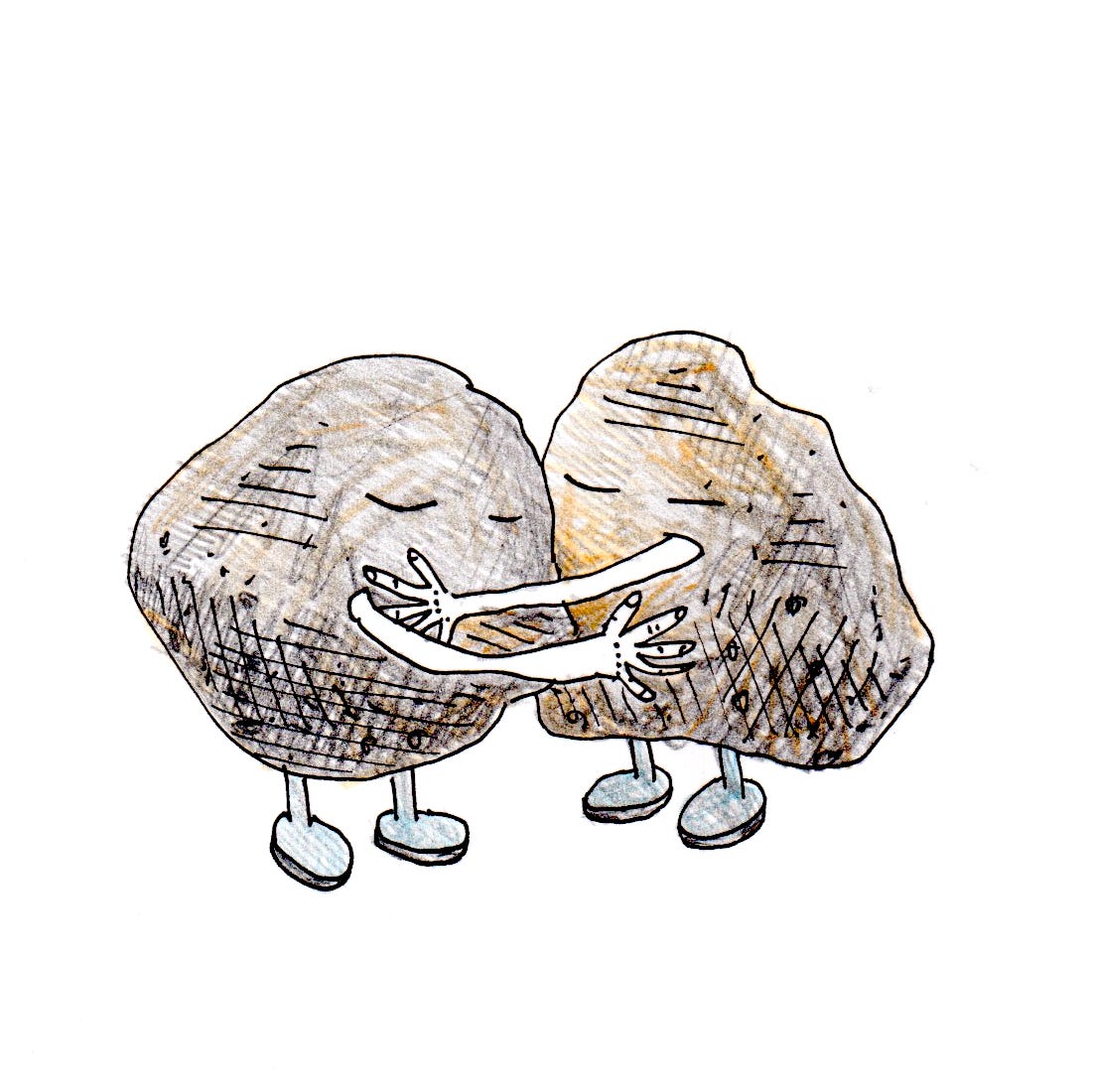The Small Bow is funded entirely out of the pockets of paying subscribers. We don’t take advertisements or sponsorships. We use your money to help pay for all our freelancers and Edith’s illustrations. Our newsletter is for people who have substance misuse issues or struggle with mental health, but our stories have a far greater reach than that. TSB is for the unlucky and the unlovable. The ugly and the lost. And if you’re undecided—it’s whatever you need it to be.
If our newsletter has helped you feel less wicked and alone, less shitty or afraid, then please consider financially supporting us. Subscribers get access to the entire archive, the Sunday essay, the entire recommendations roundup, and the complete rundown of my weekly recovery program. Seriously—thank you for letting us be of service.
I have noticed that this part of me gets very agitated and defensive over what feels like a major offense when, in reality, it’s a minor slight. Recently, it’s happened a couple of times in my professional life. Without getting too specific, some associates made suggestions about how I write that I immediately took as off-limits criticism and then responded disproportionately. Of the three times it has happened—all over email, by the way—I made amends twice. (The other time, I decided the best approach was to close the laptop lid and take a shower.) Afterward, I asked my sponsor(s) why I still act this way even though I’ve been active in this program for almost a decade. It’s not their job to know—it’s their job to instruct on how to amend it.
My reactions in these situations are very much one of my major “defects of character” (as we call it in the 12-step biz) that have not been removed. I still take things waaaay too personally, and my reactions can often get downright vituperative. It’s never a good look and never gives me the satisfaction I think it will. Why is my emotional sobriety still so goddamn fragile?
I’m reworking through a 9th Step in Al-Anon right now, and there’s a section in the book “Paths to Recovery” about the process that feels more relevant to me this time around. See how this hits:
“In making amends, we need to understand that we are not necessarily making an apology. There are differences between amends and apologies. In making an apology, we usually say, “I’m sorry,” expecting a response of acceptance, pardon, or forgiveness. In making an amends we state our errors, our role in the incident and that we will correct our behavior for the future. We may or may not ask for forgiveness and we may or may not experience a positive response. In many cases, our changed behavior indicates a stronger amends than words could ever be.”
As part of my new amends process, I’m revisiting some of the old ones I’ve made—ones that failed and ones that have succeeded. One of the most miraculous ones was one I’d written about before. It was with Jenn Sterger, who once saw me as a huge source of trauma in her life, but we’ve since managed to work through it. Amazingly, she’s now someone I consider a friend. Here’s a remixed version of that essay and the accompanying podcast episode.
How to Forgive
My AA sponsor and I began this nice routine where I do my step work in his tattoo shop: We finish a step and then I get a small tattoo. Last week, we did the 8th step where, once again, I'm supposed to "make a list of people I had harmed" and promise a willingness to make amends to them all. The actual amends happen later — that’s Step 9. Every year for the past five years — with three different sponsors — I've done the 8th, but my list continues to grow. My sponsor said that he "hasn't added anyone in two years," and I guess he's either lying or a saint or lives a very dull life, but he's a tattoo artist, so it can't be that dull.
Or he keeps his life simple. I think that's it — he's a student of simplicity. That notion used to terrify me because, to me, as a drunk idiot, a simple life meant a drab one. I preferred to be freewheeling and mysterious! I am one of the special ones who will avoid consequences! I shall touch the sun!
But more often than not, I was just a total piece of shit.
And every year, I remember new lows — when I failed to treat someone like they were an actual human with a heartbeat. Sometimes, these awful memories will creep in like black smoke, but I'll do my best to forget them. If I don't remember them, then, well, what's there to amend? But with more clarity and more sobriety, the more I remember.
Once again, this year's list is longer than last year's. So we read the chapter from the Big Book out loud and then discussed how I should go about mending things with the lucky people on this year’s list. "But what if I think the person I did something to is a bigger piece of shit than I ever was?" He said I should deal with that issue later.
I got stuck on this, though. What if my biggest problem isn't amending but forgiveness? And maybe I should forgive myself first. I should: I just haven't figured out how to do that yet.
*****
So that's where today's real story begins. Comedian Jenn Sterger, more than any other person, has taught me the actual benefits of the amends process: it’s an opportunity for people to forgive you. It’s a gift to help them get rid of the invisible shackles of a hateful, broken heart.
Keep reading with a 7-day free trial
Subscribe to The Small Bow to keep reading this post and get 7 days of free access to the full post archives.






